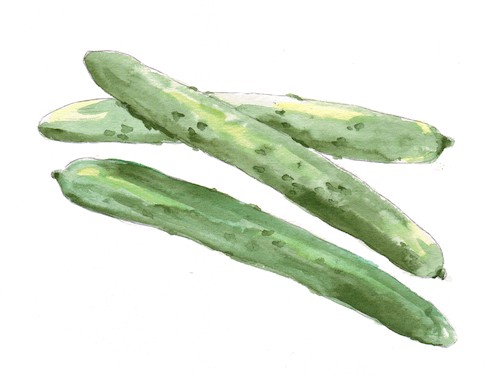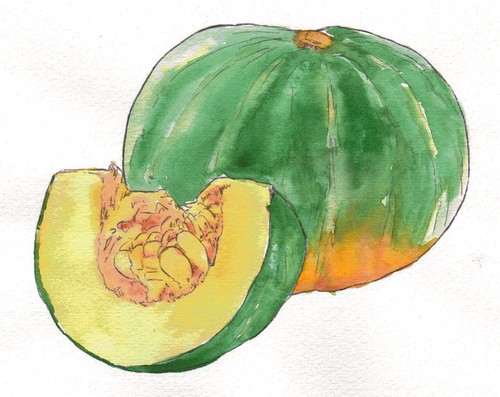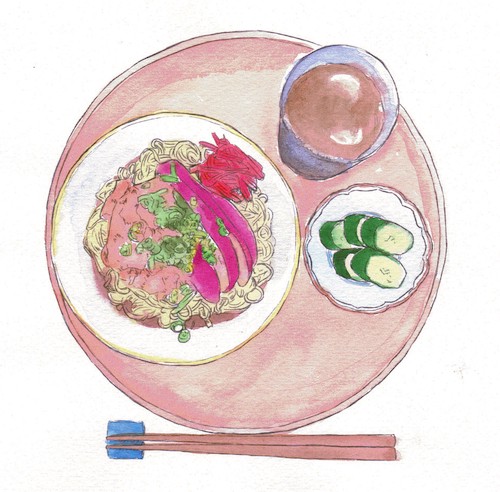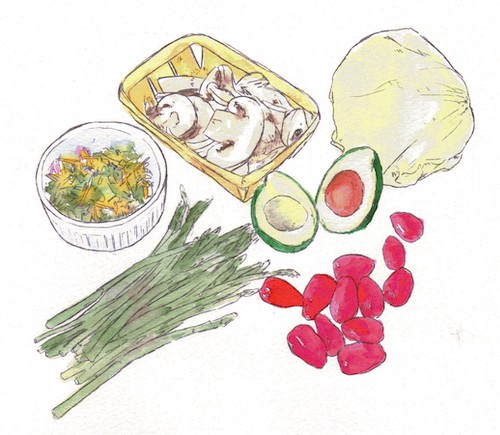
Japanese vegetables helped me pick better ones in the U.S.
When I was young and lived in the U.S., I really disliked vegetables. I thought they were either bitter, sour, or bland, and compared their consumption to taking medicine. I would always force them down by covering them in ranch, or refusing them unless they were steamed into mush and covered with butter and salt. So it seemed odd to me when I was watching Ghibli’s My Neighbor Totoro that there was a scene where the main characters sat down to eat some raw cucumbers, seasoned with nothing, and snacked on them like they were chips.
It was just an animation, but I still couldn’t get over how fresh they looked picked right off the farm, and the crunchy, crisp sound the cucumbers made when they bit into the vegetable. For the first time in my life I remember feeling like, Hey, I want to eat one of those.
It was just an animation, but I still couldn’t get over how fresh they looked picked right off the farm, and the crunchy, crisp sound the cucumbers made when they bit into the vegetable.
When we visited Japan for the summer, I begged my mom to let me have one of those Japanese cucumbers. I was adamant it was Japanese because I wanted to be just like the girls in the movie. We visited a supermarket, picked a few out, and brought them home to eat — and lo and behold, I thought my tastebuds were deceiving me because it actually tasted good.
That summer, I began to take note of other vegetables that were supposedly the same as the ones in America, but for some reason, tasted better in Japan.
Japanese vegetables taste different: a few examples
Japanese cucumbers
- Crunchy and crisp. The peel is thin, and so it doesn’t leave a rough chew if you leave it on. They’re much skinnier, and they have virtually no seeds to pick through. They’re never sour, always a bit sweet.
Japanese eggplants
- These are much smaller than American ones. They have delicate skin and the flesh becomes very soft when cooked. They are flavorful in ways that I didn’t realize eggplants could be.
Japanese squash
- Kabocha, or Japanese squash, is smaller, a brighter orange, and much sweeter than butternut. They’re sweet like sweet potato and become very creamy when steamed, very crisp when baked.

The real reason I didn’t like eating vegetables
My time in Japan made me realize the real reason why I didn’t like eating vegetables: The vegetables I was eating in the U.S. weren’t good.
It seems obvious enough: Good food starts with the ingredients. When you cook with ingredients that are naturally sweet, aren’t bitter, and aren’t hard, you don’t need to cover the flavor of the vegetable with lots of salt, oil, or sugar. You enjoy the taste so you let the natural flavor come out, and only need to lightly dress the vegetables with seasonings.
This is a wonderful revelation for sure, that I could eat healthily and still enjoy delicious food — but what did this mean once I returned to the U.S.?

Loving your ingredients matters in shaping healthy habits
I was worried that I would revert to my vegetable-disliking self in the U.S., but it turns out I made an important switch in my thinking when it came to healthy eating habits, and I could continue to love vegetables even when I returned.
It’s more important to choose vegetables you enjoy and want to incorporate in your meals again and again over “superfoods,” which are touted as the solution to our health woes yet don’t taste great. Because what good is kale to our health if the idea of cooking with it repulses us?
In the U.S., this meant going to farmers markets and choosing seasonal ingredients. It meant shopping for myself and getting excited about the new selection of vegetables being offered. Farmers markets aren’t just mumbo jumbo for hippies and health nuts; there is real value in picking high-quality produce in transforming the way you enjoy healthy food. It doesn’t need to be expensive or boutique, in fact, you can get them for bulk at a cheaper price by signing up for a local co-op program. Choosing local and seasonal vegetables that you enjoy is the difference that makes healthy eating sustainable, and not a chore.
I’ve stopped cooking with sour American cucumbers and bitter green beans, covering them up in sauces and frying oil to force them down because they’re “healthy” for me. Instead, I am deliberate in choosing seasonal produce that I enjoy from grocery stores and co-op programs that I love, and find myself eating lots of fresh vegetables without reluctance.
So the key to sustainable, healthier eating? If it brings you joy, you’ll naturally continue it for life, guaranteed.


If you enjoyed this piece, let me know at my email kokumura@kakikata.space! I welcome comments or questions, and would love to hear from you 😊 Warm regards, Kaki.